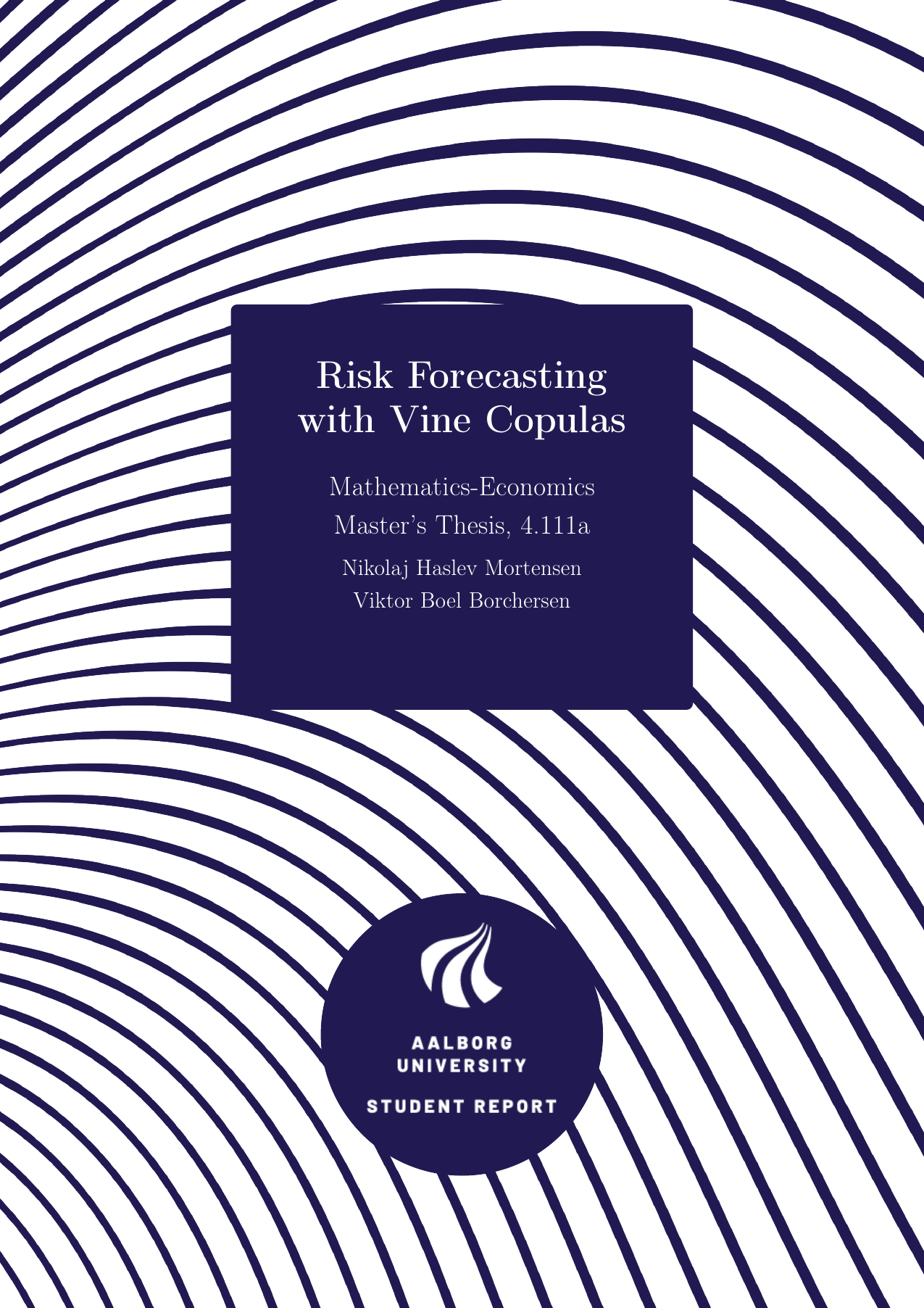
Risk Forecasting with Vine Copulas
Term
4. term
Education
Publication year
2024
Submitted on
2024-05-30
Pages
105
Abstract
This project seeks to investigate the capabilities of vine copulas, where the marginals are modeled with ARMA-GARCH models, to forecast the risk measures (Conditional) Value at Risk ((C)V aR). To do so, theory about copulas, vine copulas, and estimation and selection is presented. Afterwards, theory about (C)V aR and backtesting of these measures is shown. Data from three sectors from the S&P-500 index is chosen namely financial, healthcare, and technology. The analysis starts with in-sample estimation of both the marginals and the vine copula, as well as goodness of fit testing on the data. The fits of the marginals were tested with an Anderson-Darling test where the null hypothesis was not rejected for any of the marginals. The R-vine copula outperformed the Gaussian- and Student’s t-copula. Therefore, the analysis proceeded to an out-of-sample forecast of (C)V aR. The backtests of the forecasts of (C)V aR indicated that the model was not able to forecast (C)V aR well. The inadequate forecasts of the (C)V aR, were due to the high dimensional and the changing tendencies in the data over time. However, a mean-CV aR portfolio allocation problem was performed for each sector anyway. The mean-CVaR strategies all outperformed equally-weighted portfolios in terms of return but also had higher levels of (C)V aR.
Documents
